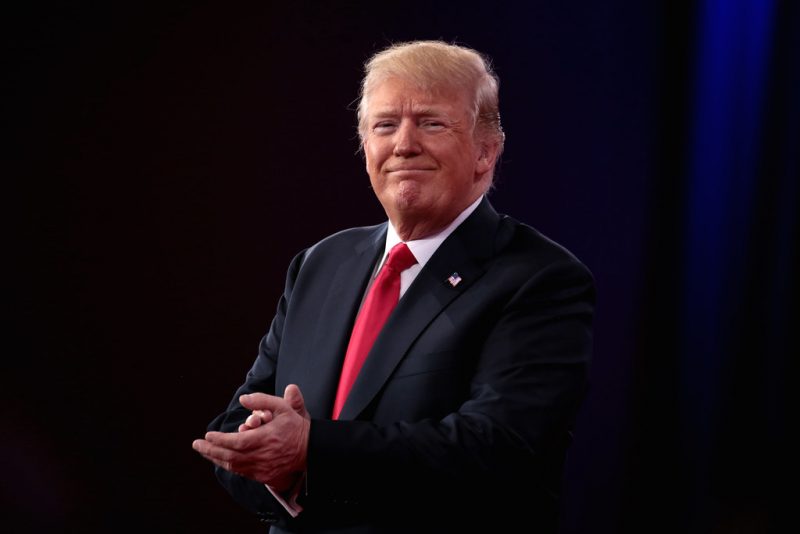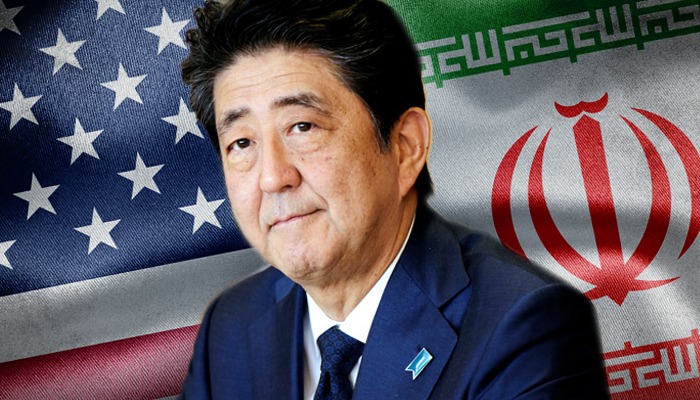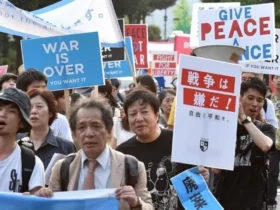Recently President Donald Trump, while in Tokyo, said that he would support Shinzo Abe’s efforts to mediate between Iran and the US.
Trump also said: “I know that the prime minister and Japan have a very good relationship with Iran so we’ll see what happens.”
He added: “Washington was not interested in regime change in Iran. I’m looking to Iran to say no nuclear weapons. I think we’ll make a deal. Iran has tremendous economic potential … I’m not looking to hurt Iran at all.”
Perhaps most indicatively he said that Iran “has a chance to be a great country, with the same leadership”.
Words which are exactly the opposite of what Washington has said for decades.
Anyone following the Iran / US debate over the past 40 years could tell you that for four decades the Iranians had been waiting to hear these words from an American president.
If the American’s policy was in accorded with what Trump has now said, it could have prevented many quarrels and debates between the two countries since the end of the Islamic revolution.
As for nuclear worries, Iranian foreign minister Mohammad Javad Zarif answered American concerns via twitter saying “Ayatollah Khamenei long ago said we’re not seeking nuclear weapons by issuing a fatwa (edict) banning them”.
Though the Iranians refuse all mediums of negotiation with the US, it seems Twitter has become common ground for talks between Iranians and the American president.
Looking at what has been said on both sides, it appears everything is already solved and all that is left is to sit down at the negotiation table and talk.
At least some on the American side don’t want to bring down the regime and accept the current leaders, saying the only thing they are concerned about is making sure Iran doesn’t produce a nuclear weapon and that the Iranian leader has issued an edict to ban the weapons.
Iran and the US had an agreement called the JCPOA which gave Washington all the guarantees they demanded, and then, suddenly, a new American president came in and said that he wasn’t happy with the terms of the agreement and wants a new deal.
The JCPOA was not the first nuclear deal Iranians signed, they signed another 12 years before with three European countries who arranged everything according to US demands. The Iranians implemented all their commitments according to that deal, but the Americans decided it was unacceptable all the same.
Any analyst could tell you that the talks between Iran and the P5+1 were mainly talks between Iran and the US and that the other five countries were there to guarantee the result of the talks.
To satisfy Iran, the deal was taken to the UN security council and adopted as a resolution, so what happened?
President Trump simply backed out of the deal and reinstated all the sanctions against Iran, and no one stood up against his decision.
So what guarantee is there for Iran that if it sits at the negotiation table again and reaches a new deal, that the next president won’t come in and cancel it?

Flickr
President Rouhani’s government is not in a situation to take such a risk.
No one can deny that the Iranian people are under pressure but they are willing to hold on to their principles. As they believe themselves to be the victims of US plots, they will not put themselves in a position that could leave them susceptible to another plot. Of course, no politician will be ready to endanger his future by even talking about negotiations with the US again, at least given the current situation.
The least that the Iranian government could demand to convince the people on another round of talks would be the US reinstating the Nuclear deal and fulfilling all its obligations such as removing sanctions against Iran.
With this in mind, Mr. Shinzo Abe intends to visit Iran to serve as a mediator.
If this happens it would be the first visit of a Japanese prime minister to Iran since the Islamic revolution.
Though both countries have had good relations before and after the revolution, the Japanese have never taken a step which would anger the Americans and were always careful in the level and type of relations they built.
I have had the chance to become acquainted with almost all Japanese Ambassadors in Tehran for the last twenty years and can confirm that all of them sought to build strong political and economic relations with Iran… However, about a year ago, a new Ambassador was appointed who doesn’t seek to improve political and economic relations and is only interested in cultural relations.
It is evident that, since his appointment, the Japanese have decided to lower their economic and political relations with Iran for the sake of improving relations with the new American administration.
Throughout the past four years, I heard many plans for a Japanese prime minister to pay a visit to Tehran, especially after the nuclear deal, but it was always delayed due to an American Veto on the visit.
Now, Mr. Shinzo Abe intends to visit Tehran according to US instructions and he expects that with all these Japanese moves in favor of US, the Iranians would accept him as a mediator.
Many link Trump’s visit to Japan to the Iranian foreign ministers visit this country and believe that Mr. Abe got a green light from Iranians to start talks with the Americans… but on the other hand, many believe that the reason Zarif visited Japan was to ask them to pressure Americans to abide by the nuclear deal and not mediate between Iran and US.
Iranian politicians will only accept Abe’s visit if it is aimed at discussing mutual relations, especially economic and political relations, but not as a mediator since the US has not fulfilled the Iranian government’s demands for beginning talks… nonetheless, if he has anything to say the Iranians will be ready to hear.
We will have to wait and see if the Japanese prime minister has the same magical abilities his Ambassador to Tehran has, and whether or not he will be able to make progress in improving the relationship between Washington and Tehran.

















Leave a Reply